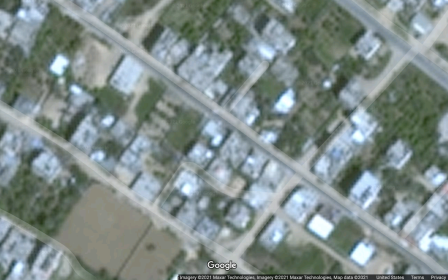Saudi Arabia: Google urged to halt Cloud region over spying concerns

Google has been urged to halt plans to establish a new Cloud region in Saudi Arabia by a coalition of campaign groups, citing human rights concerns.
On Wednesday, 39 human and digital rights organisations and advocates wrote a joint letter to the company raising concerns about Riyadh's use of technology to crack down on opposition and dissidents.
The signatories included Human Rights Watch, ALQST, Access Now, and MENA Rights Group.
“Saudi Arabia’s recent track record of repression of all public dissent, alleged espionage and infiltration of technology platforms, use of cyber-surveillance software to spy on dissidents, and a notorious justice system that flagrantly violates due process rights make [it] an unsafe country to host Google Cloud services,” the letter stated.
Google announced in December last year that it would be partnering with Saudi Aramco Development Company, a subsidiary of the kingdom's state oil giant Aramco, to open up a Google Cloud region.
Google's data storage and cloud computing services are some of the largest in the world.
“The fact that Google Cloud will be established in partnership with Aramco, a state-owned company… sends a chilling message that the company is somehow associated with the Saudi authorities,” Ines Osman, founder, and director of MENA Rights Groups, told Middle East Eye.
MEE reached out to Google for comment on the concerns from rights groups but had not received a response at the time of publication.
Fears for critics and dissidents
Saudi authorities have repeatedly been accused of using big tech to crack down on dissent within the kingdom and among political dissidents living abroad.
“Establishing a Google Cloud in Saudi Arabia - a state with an atrocious track record of human rights abuses - is a dangerous plan,” said Marwa Fatafta, MENA policy manager at Access Now.
“Ripe for exploitation, Google is handing over personal data directly into the palms of a brutal regime who has spared no effort to oppress and spy on its citizens.”
Two former employees of Twitter, Ali Alzabarah and Ahmad Abouammo, were accused in 2015 of accessing and passing on the details of more than 6,000 users critical of Riyadh to a Saudi official with close ties to the royal family.
Bloomberg reported in August that the actions of the alleged Twitter spies directly led to the detainment of Abdulrahman al-Sadhan, a Saudi aid worker who ran an anonymous Twitter account critical of government policy. Sadhan was last month sentenced to 20 years in prison.
Former royal court adviser Saud al-Qahtani used his verified Twitter account to boast in August 2017 that Riyadh had "technical ways" and a "secret I'm not going to say" to track down anonymous social media users.
"Does a pseudonym protect you from the blacklist?" Qahtani tweeted at the time. "No."
The former adviser's profile has since been permanently banned for violating Twitter's manipulation policies. He served as a close aide to Crown Prince Mohammed bin Salman until he was removed after being implicated in the murder of Saudi journalist Jamal Khashoggi.
In 2018, Citizen Lab concluded with “high confidence” that the mobile phone of prominent Canada-based Saudi activist Omar Abdulaziz was infected with spyware that would have allowed full access to his files, microphone, and camera.
“It should have been obvious for Google that Saudi Arabia was no place to open a Cloud region considering the current climate of repression and abusive use of surveillance to target peaceful dissenting voices,” Osman said.
“By doing so, Google is going against its own commitment to respect human rights and could become complicit in future abuses.”
Human rights assessment
In January, Access Now and the Canadian Internet Policy and Public Interest Clinic (CIPPIC) wrote to Google requesting information on the due diligence it carried out on the human rights implications of its cloud service in Saudi Arabia.
Google responded saying that it had carried out an independent human rights assessment for the Cloud region, and had taken steps to address issues identified by activists. It did not specify what those steps were.
“Though Google stated they allegedly conducted a due diligence process, there has been little transparency on what exactly it entailed, which makes it impossible to know if this assessment was done at all, or done in good faith,” Osman said.
Rasha Abdul Rahim, director of Amnesty Tech, said that the tech giant has not provided enough transparency regarding the types of data that will be stored in the cloud services, how that data will be protected and whether the Saudi government will be able to penetrate the data.
"We're calling on Google to immediately halt this plan, until Google can demonstrate publicly and transparently how it will mitigate the risks of adverse human rights impacts that several human rights organisations have identified," Rahim told Middle East Eye.
"The concern is related to people's right to privacy, people's security, and also lack of accountability in the Saudi Arabian justice system. Without knowing the extent to which the [Saudi] authorities will have access to the data, it's really difficult to imagine that people's information will be safe."
The coalition of rights groups called on Google to conduct a thorough human rights due diligence process which included “meaningful consultation with potentially affected groups”, and to publish its findings.
It also called on the California-based company to draw red lines around government requests it would not comply with due to being “inconsistent with human rights norms”.
Middle East Eye propose une couverture et une analyse indépendantes et incomparables du Moyen-Orient, de l’Afrique du Nord et d’autres régions du monde. Pour en savoir plus sur la reprise de ce contenu et les frais qui s’appliquent, veuillez remplir ce formulaire [en anglais]. Pour en savoir plus sur MEE, cliquez ici [en anglais].






